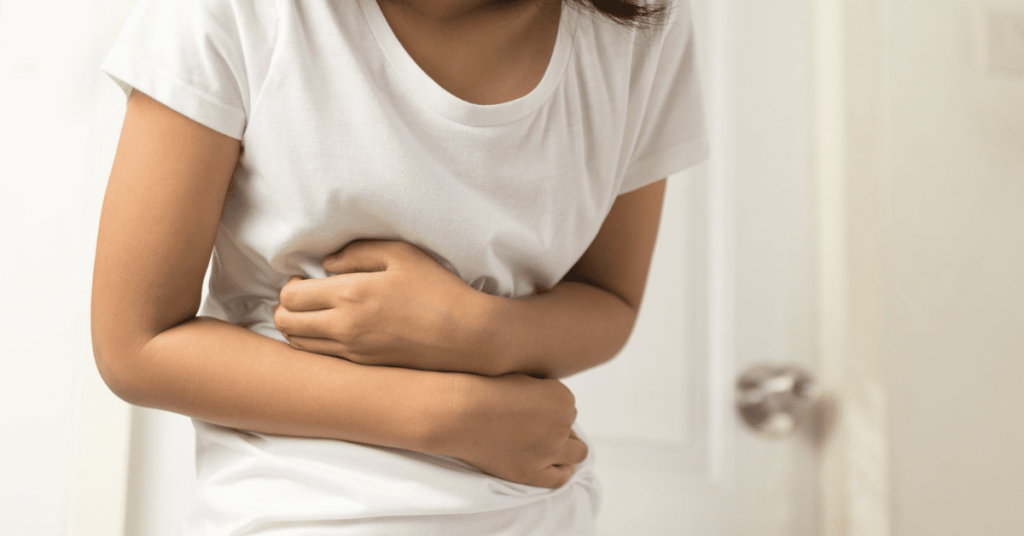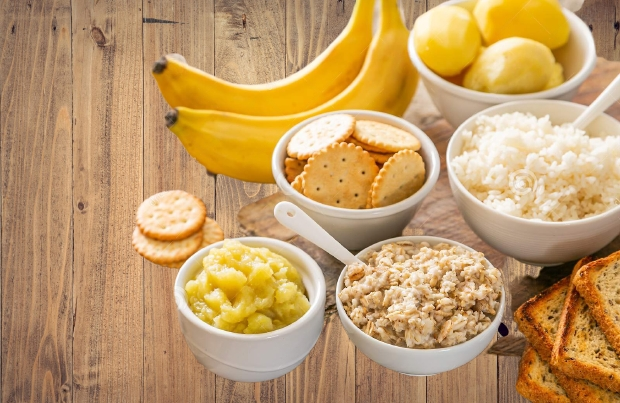Most people will experience a bout of diarrhea at least once each year. Diarrhea itself is a symptom, and it manifests itself in the form of loose, watery feces. This condition, often known as “loose stools,” occurs when the intestines are unable to absorb nutrition. If this occurs, digestion stops and food passes through the digestive tract.
Diarrhea, or “loose stools,” is a common medical problem that affects people of all ages, from infants and mothers to the elderly. Symptoms of diarrhea include diarrhea and unusually frequent, loose, or watery bowel motions.
A wide variety of factors might set off a bout of diarrhea. Food poisoning, infections, allergies, and stress are just a few examples. Diarrhea, then, is just a symptom that could have any number of underlying reasons. Most cases of loose movements are benign and can be treated effectively at home.

Diarrhea can cause or lead to a number of different symptoms, such as dehydration, blood clots, and loss of fluids and electrolytes. But the most common cause of loose stools is a decrease in the number of beneficial bacteria in the stomach, which can be brought on by changes in diet or inappropriate use of antibiotics.
Humans frequently ponder the question of how to halt unrestrained motion. The good news is that diarrhea is usually mild and passes quickly, usually within a day or two. On the other hand, it could become a serious illness if the situation gets bad enough. Hence, if you try loose motion home treatments and they don’t work for you, you should see a medical professional.
Having chronic Diarrhea versus having it after eating
You might have loose stools all the time, or you might just have loose stools after eating. It’s important to understand how different situations are different from each other.
Most of the time, having loose stools after eating is not a sign of a long-term health problem and maybe a one-time thing. On the other hand, persistent diarrhea might be a problem for several weeks. If you keep track of how long the symptoms last, you will be able to determine whether or not you have chronic loose stools.
Stools that are loose in consistency after eating could be a sign of food poisoning, lactose intolerance, or infections. You may also have loose stools after eating if you took too much magnesium or drank too much coffee. Certain foods, such as those that are particularly spicy or oily, might also cause diarrhea or loose stools.
In most cases, the symptoms of chronic diarrhea are caused by another medical problem. It’s possible that syndrome of irritable bowel diseases such as celiac disease, ulcerative colitis, bile acid malabsorption syndrome, and dumping syndrome
A normal case of diarrhea versus a severe one
The condition known as diarrhea can be categorized in a number of different ways. The following are some examples of diarrhea:
People with acute diarrhea usually have loose, watery stools for one to two days. This type of diarrhea is the most prevalent type of acute diarrhea. This kind does not require treatment, and in most cases, it clears up on its own after a few days have passed.
This form of diarrhea typically lasts for several weeks—anywhere from two to four weeks in most cases.
Constant stomach upset: Chronic diarrhea is defined as diarrhea that lasts for more than four weeks or diarrhea that comes and goes on a consistent basis over a significant amount of time.
Symptoms of diarrhea
It is very important to know what the difference is between diarrhea and loose stools. If you have diarrhea, you will also have bowel movements that are loose or watery. On the other hand, just because you have some loose stools here and there does not suggest that you have diarrhea.
To be diagnosed with diarrhea, a person must have to go to the bathroom a lot and have loose stools. Diarrhea is diagnosed when a person has loose stools at least three times a day or more.
The following is a list of the most common symptoms of loose stools:
- watery stools
- feces that are soft or mushy
- shapeless stools
You might also experience the following additional stomach symptoms:
- cramping in the stomach
- pain in the stomach
- nausea and vomiting
Possible reasons for irregular diarrhea
The vast majority of people will occasionally suffer from diarrhea These episodes of diarrhea may have been brought on by:
1. Dietary trends
It’s possible that consuming certain meals, drinks, or supplements will make you more likely to experience diarrhea or loose stools. Sugar alcohols and lactose are two examples of the types of sugars that the body can have difficulty digesting at times.
Sugar alcohols can be found in a wide variety of natural and artificial flavors, as well as in a variety of fruits and vegetables. Alcohols are hard for the small intestine to break down, so eating too many of them can cause diarrhea.
A diet that is high in lactose, a sugar that can be found in milk and other items derived from milk, can also cause diarrhea. Individuals who are lactose intolerant may develop diarrhea after consuming any product that contains milk, even lactose-free products.
Diets high in certain foods can also produce loose stools. Some foods include:
- meals that are heavy in alcohol and spices
- coffee, magnesium, and selenium (S2)
- related diseases
- food poisoning could be the cause
Inflammation of the intestines and stomach can be brought on by a variety of pathogens, including viruses, bacteria, and parasites. This can lead to diarrhea and loose stools, as well as other signs and symptoms, such as:
- abdominal pain
- vomiting
- nausea
3. Irritable bowel syndrome
Irritable bowel syndrome, or IBS for short, is a long-lasting illness that affects the digestive system. Irritable bowel syndrome has a number of signs and symptoms, and diarrhea is one of them. Other symptoms may include the following:
- abdominal pain
- discomfort in the abdominal region constipation
- Gas\sindigestion
4. Ulcerative colitis
Ulcerative colitis is a chronic disorder that causes inflammation in the colon and rectum. It is also abbreviated as UC. Individuals who suffer from UC frequently struggle with diarrhea and loose feces. Other symptoms of UC include the following:
- abdominal pain
- bowel movements that occur frequently
- lack of energy and appetite, as well as weight loss
- ulceration of the mouth
- joint discomfort
- skin irritation
- Irritation of the eyes
5. Crohn’s Disease
In patients with Crohn’s disease, the lining of the digestive tract becomes inflamed over the course of the disease’s progression. It is possible for it to induce loose stools and diarrhea. Other symptoms may include the following:
- discomfort in the abdomen area
- blood in the stool
- loss of appetite and
- exhaustion
6. Celiac disease
Gluten makes the small intestine inflamed in people with celiac disease, which is a common illness. This inflammation can be quite debilitating. Gluten can cause gastrointestinal distress in some people, including diarrhea and loose stools. Among the other symptoms are:
- abdominal pain
- gastrointestinal issues such as bloating, gas, constipation, and indigestion.
- inflammation of the skin weariness and weight loss
7. Bile acid malabsorption
Several conditions that affect both the liver and the gallbladder can make it hard for the intestines to break down fats normally. These conditions can cause the action of bile to become impaired. Those who have gallstones or liver cirrhosis, for instance, are more likely to experience this condition. The inability to properly absorb bile acids might result in diarrhea or loose stools.

8. Hyperthyroidism
An overactive thyroid happens when the thyroid gland makes more hormones than usual, which makes it hard for the gland to work normally. This may result in diarrhea or loose bowel movements. Other symptoms may include the following:
- rise in body temperature,
- poor control of sleep,
- swelling around the neck
- irregular body temperature and
- irritation or feeling of restlessness
- fluctuations in one’s weight reduction
9. Pancreatitis that lasts a long time
Tartrates of inflammation are found in the pancreas but not elsewhere in the body in chronic pancreatitis. It could make it harder for the body to break down proteins, lipids, and carbohydrates in the right way.
10. Cystic fibrosis
Mucus builds up in the lungs and digestive tract of people with cystic fibrosis, which is a long-term disease. This can cause digestion to become impaired, which can then lead to loose stools or diarrhea. Among the other symptoms are:
- recurrent infections of the chest
- chronic cough
- trouble breathing, and
- difficulties gaining weight
11. Rapid gastric emptying
A disorder known as “dumping syndrome” is characterized by an abnormally rapid movement of food from the stomach to the intestine. It is common to undergo surgical procedures for weight loss. It is possible for it to produce diarrhea and loose stools. Among the other symptoms are:
- abdominal pain
- nausea
- vomiting
- dizziness
- irregular beating of the heart
Problems associated with having loose stools
Those who have diarrhea or bowel movements that are loose and watery are at an increased risk of dehydration. Be careful to consume enough fluids and maintain a healthy level of hydration.
Malnutrition is yet another potential consequence of this condition. The inability to properly absorb necessary nutrients is a potential issue. It’s possible that you’re not getting enough of certain nutrients, such as vitamins, minerals, or other essential compounds. Discuss treatment options for malnutrition with your attending physician.
Risk factors associated with loose stools
Anyone can experience the condition of having loose stools at some point in their lives. This impacts people of all ages, including adults and children.
On the other hand, certain people have a significantly increased chance of having loose stools. If you have irritable bowel syndrome, celiac disease, Crohn’s disease, dumping syndrome, ulcerative colitis, hyperthyroidism, or bile acid malabsorption, it is more likely that you will have loose stools.
Home remedies
Most of the time, you don’t need medical help for loose stools that only happen occasionally. On the other hand, having frequent episodes of loose stools might lead to dehydration as well as malnutrition. Here are some examples of home remedies that may help stop or lessen diarrhea:
- Dietary modifications to avoid items producing loose stools
- Eating foods that are high in fiber and using anti-diarrhea medications, such as Imodium, are two things that can help stop diarrhea. Imodium can be purchased over-the-counter or online, depending on your preference.
- Taking probiotics and staying hydrated are both important. You can get a variety of probiotics on the internet at your convenience.
Diarrhea that is brought on by dietary changes, illnesses, or food poisoning should be able to return to normal after a few days with the assistance of these home treatments. If a patient still has diarrhea or loose stools after a week of treatment, they should go to the hospital right away. This could be a sign of a more serious health problem that could get worse over time if it isn’t treated.
Some illnesses can be treated with antibiotics or other drugs that need a prescription from a doctor, while others, like pancreatitis, usually need to be treated in a hospital. Some conditions can’t be treated or cured, but the symptoms can often be managed.
Irritable bowel syndrome (IBS), cystic fibrosis, celiac disease, and Crohn’s disease are examples of these disorders. Symptoms are often treated by making changes to how a person lives and by getting medical care.
How is one able to treat diarrhea?
When diarrhea is mild and doesn’t cause any other problems, it can often be treated at home. If you take an over-the-counter medicine like Pepto-Bismol® or Kaopectate® that has bismuth subsalicylate in it, you should feel much better in a short amount of time.
On the other hand, drugs available without a prescription aren’t always the answer. If your diarrhea is caused by an infection or a parasite, you will need to see a doctor in order to get treatment for it. If you also have a fever or have noticed blood in your stool, it is not a good idea to use over-the-counter drugs for your diarrhea. This is the general guideline. In such circumstances, you should contact your healthcare provider.
If you have diarrhea for a long time (many weeks), your doctor will figure out the best way to treat it based on what’s causing it. This might include a few various approaches to treatment, such as the following:
Antibiotics: In order to treat an infection or parasite that is the root cause of your diarrhea, your healthcare practitioner may prescribe an antibiotic or another drug for you to take.
Medicines prescribed for a particular condition: A number of other medical problems, such as irritable bowel syndrome (IBS), inflammatory bowel disease (IBD) like Crohn’s disease and ulcerative colitis, microscopic colitis, or bacterial overgrowth, can be indicators of diarrhea. Most of the time, diarrhea can be stopped once the underlying cause has been found.
Probiotics: They are groups of good bacteria, that have been shown to be effective in treating diarrhea by bringing the microbiome back into balance. Some doctors think it would be a good idea to test the idea that taking probiotics as a supplement could be helpful in certain situations. Before you start taking any kind of supplement, like probiotics, you should always talk to your doctor or nurse.
Should I use the over-the-counter drugs that are available to treat diarrhea?
While taking an over-the-counter drug for diarrhea, it is imperative that you carefully follow the recommendations that are printed on the container. When it comes to treating diarrhea in adults, the rules are different than those used for children. Before giving your child any medication for diarrhea, you should always consult with the healthcare expert who is treating your child.
Is it possible for me to control diarrhea without using any medication?
When you have a mild case of diarrhea, you might be able to treat it on your own without the assistance of any medicine. The following is a list of some of the things that can be done to treat diarrhea:
consuming large amounts of water as well as other electrolyte-balanced fluids (such as fruit juices that have been diluted and do not contain pulp, broths, sports drinks (Gatorade®), and sodas that do not contain caffeine). Be sure to drink plenty of water throughout the day. When you have diarrhea, your body loses a significant amount of water. You may prevent your body from becoming dehydrated by consuming a lot of additional fluids throughout the day.
Modifying your diet Instead of choosing foods that are fried, oily, or deep-fried, you could try the BRAT diet:
B: Bananas.
R: rice (white rice).
A: Applesauce.
T: Toasted bread (white bread).
Some caffeine-containing foods and drinks can make you go to the bathroom more often, which can make your diarrhea worse. Caffeinated foods and beverages can have a minor laxative effect, which can make your diarrhea worse. Caffeine is found in a variety of foods and beverages. Coffee, diet sodas, strong tea, green tea, and even chocolate are all examples of foods and beverages that contain caffeine.
You should try to steer clear of meals and drinks that give you gas. If you have diarrhea and stomach cramps, cutting back on foods that cause gas may help. in your stomach in conjunction with diarrhea, reducing the number of substances in your diet that generate gas may be helpful. Beer and other carbonated beverages, as well as beans, cabbage, and Brussels sprouts, can fall into this category.
Sometimes those who have diarrhea also develop an intolerance to lactose. This condition is usually very transitory, but it does suggest that you should stay away from foods that contain lactose, such as dairy products, products until your diarrhea clears up.

Foods that might be able to stop the stop diarrhea
Altering the foods you eat can actually help relieve your diarrhea symptoms. Consuming foods that are low in fiber can help your feces become firmer.
If you have diarrhea, you might want to add some of the following foods to your diet:
- Potatoes.
- White Rice
- Noodles.
- Chicken.
- Applesauce.
- White bread
- Turkey without skin
- Crushed lean beef into a mince.
- Fish.
What should I do if my infant gets diarrhea?
Call your child’s healthcare practitioner if the diarrhea is severe and your youngster has it. Little children are more likely to become dehydrated than adults of the same age. In addition, you cannot treat diarrhea in a youngster in the same manner that you would treat it in an adult.
Before giving a child any treatment for diarrhea, it’s important to talk to the child’s primary care doctor, since some over-the-counter drugs can be harmful to babies and young kids. It is essential to ensure that your child is well-hydrated at all times. Options often include the following; however, your healthcare provider will assist you in determining the optimal approach to take in this situation:
Don’t be afraid to call your child’s provider if you have any questions or concerns regarding diarrhea that your child is experiencing.
What can I do to get rid of the pain in my anus from diarrhea?
The symptoms of diarrhea often consist of numerous trips to the restroom. This can lead to a variety of discomforts like itching and burning. In the event that you are suffering any of these annoyances, there are a few things that you may do to alleviate them, including the following:
Sit in a bathtub with one-fourth of the water in it. After getting out of the tub or shower, you should dry the area around your rectus by patting it with a clean, soft towel. It is important not to rub the area that is being dried because doing so would just make the irritation worse. Putting petroleum jelly or a lotion designed to treat hemorrhoids on your anus area.
Bottom line
Most cases of diarrhea will go away on their own or with the help of some home remedies within a few days, no matter what treatment is used.
It is important to tell the difference between loose stools that happen occasionally and those that happen all the time. time. It is critical to have both loose adolescent behaviors that occur only on rare occasions and those that persist on a regular basis. If this has been going on for more than a week, this could be an indication of a more serious underlying condition that needs quick medical attention.
Disclaimer: The author’s views are his or her own. The facts and opinions in the article have been taken from various articles and political commentaries available in the online media and Eastside Writers does not take any responsibility or obligation for them.
Note: Contact our Writers at www.eastsidewriters.com for writing Blogs/Articles on any niche. We have experts in various domains from Technology to Finance and from Spirituality to Lifestyle and Entertainment.







Pingback: Learn About Ulcerative Colitis And Take Preventive Care Before Its Late
Pingback: Diarrhea Diet That Helps Stop Diarrhea And Easy Home Treatments - Eastside Writers
Pingback: Unlocking the Power of Omega Fatty Acids: The Key to a Healthy Mind and Body - Eastside Writers
Pingback: Salt Shock: The Impact of Sodium Imbalance on Your Health - Eastside Writers
Pingback: Arjuna, the Ayurvedic most quintessential herb for a balanced, holistic, and fulfilling life! - Eastside Writers
Pingback: Unlocking the Mind: Navigating the Complexities of Dhat Syndrome and Beyond - Eastside Writers
Pingback: The Burden and Agony of Pelvic Floor Pain and Its Path to Relief - Eastside Writers